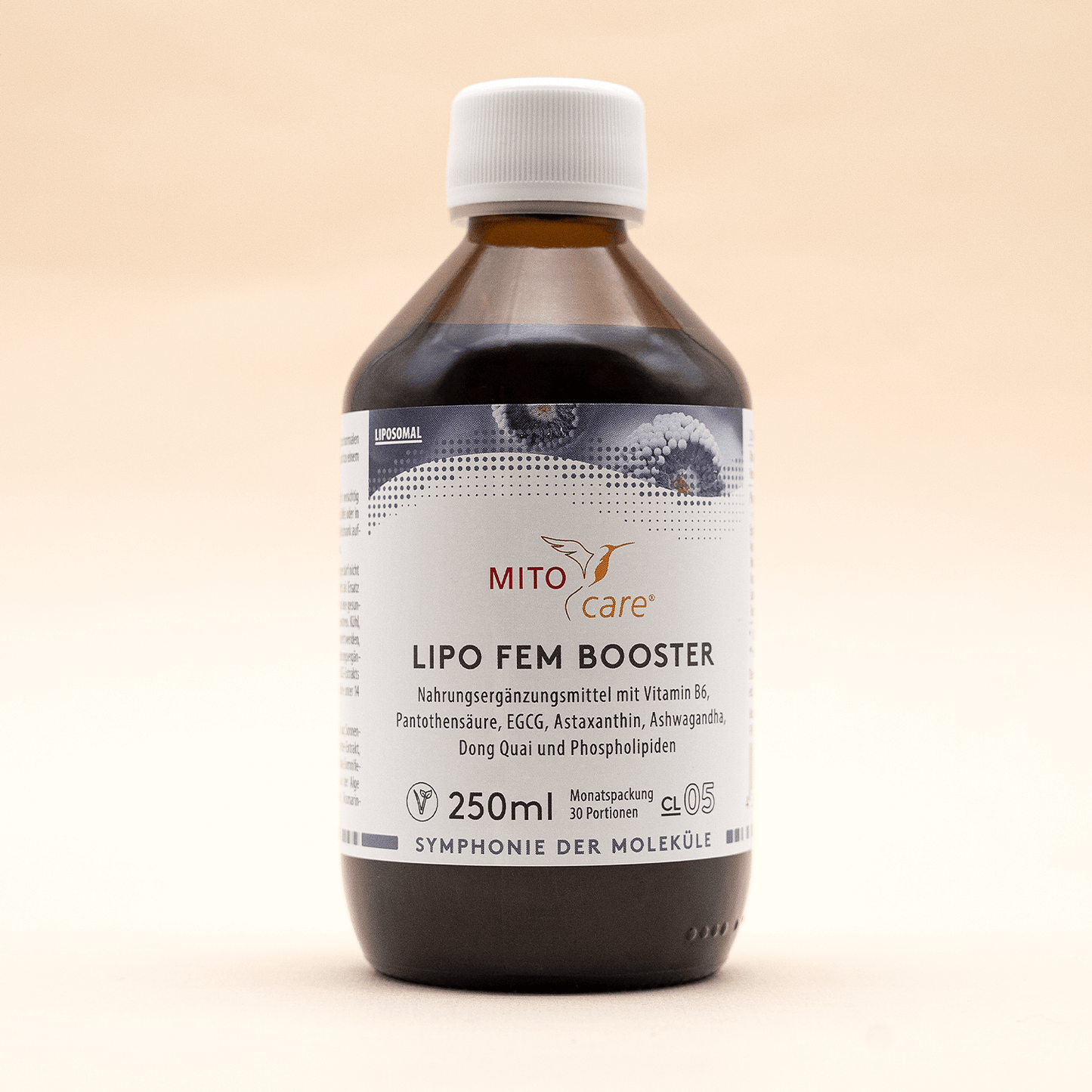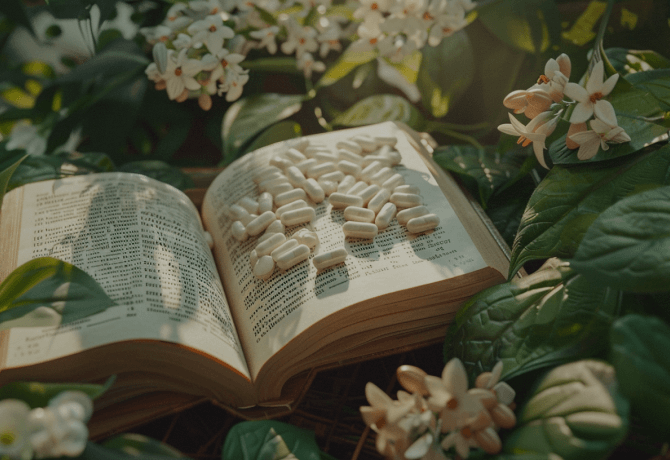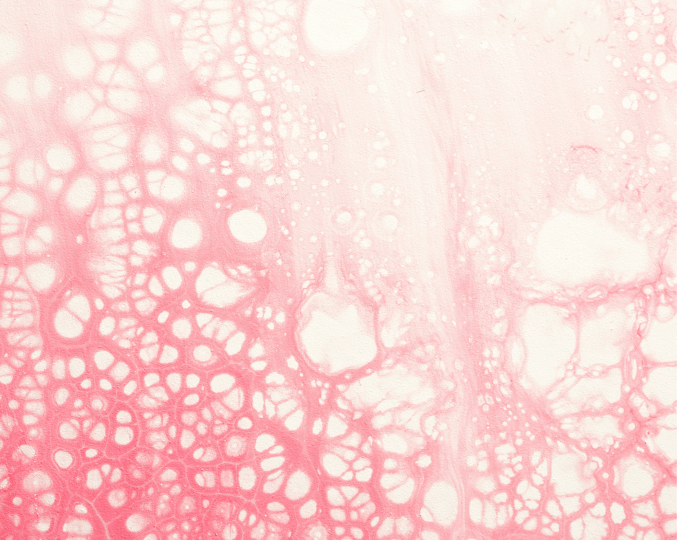Themen dieses Blogartikels:
Table of contents
- Definition: What is Ashwagandha?
- What functions does Ashwagandha have?
- What makes Ashwagandha unique?
- When do you especially need Ashwagandha?
- What should you pay attention to when taking Ashwagandha?
- Which foods contain particularly high levels of Ashwagandha?
- Ashwagandha Organic - Naturalness and Purity
- Conclusion
- Bibliography & Sources
Definition: What is Ashwagandha?
Ashwagandha (Withania somnifera), especially in its organic form, is a plant species from the nightshade family that is becoming increasingly popular in Germany. The root is also known as Indian ginseng, Indian ginseng, or winter cherry in Ayurveda. The plant is particularly widespread in South and East Asia, Africa, and the Mediterranean region.¹ Ashwagandha is cultivated as a medicinal plant primarily in India. Its name comes from Sanskrit and translates as "horse smell." The plant is said to have a bitter and earthy taste, which is why it is often incorporated into a healthy diet through smoothies and juices. But what functions does the ashwagandha root have, and how does the body react to the regular consumption of this natural plant?
What functions does Ashwagandha have?
The roots and leaves contain so-called withanolides, a group of bioactive compounds found in various plants and whose chemical structure enables a wide range of applications in research and medicine. These secondary plant substances are said to have anti-inflammatory, stress-relieving, and anxiolytic effects, among other things. Other important constituents include alkaloids, flavonoids, tannins, and saponins.²
In complementary and alternative medicine, especially in Asia, Ashwagandha is used to relieve a wide range of ailments, including sleep disorders, anxiety, and inflammation.³ The Ayurvedic plant is also said to be used in Traditional Chinese Medicine (TCM) to reduce stress, strengthen the immune system, enhance performance, and treat infertility in humans.⁴ For this purpose, the roots and leaves of the medicinal plant are dried and processed into a powder, which is then offered in the form of teas, tinctures, or capsules as dietary supplements. The berries are not usually used due to their toxicity.⁵
Advertisement
Specially developed for women's health & the hormonal system
With the premium natural ingredients Ashwagandha, Green Tea Extract (EGCG), Astaxanthin & Dong Quai (Chinese Angelica)
Supplemented with vitamin B6 & pantothenic acid for hormone regulation
Developed with doctors & experts
Delicious taste
Easy-to-dose liquid product

What makes Ashwagandha unique?
Particularly in Ayurvedic medicine, the Indian ginseng has been a valued medicinal plant for thousands of years, believed to possess a variety of health-promoting properties. Whether and to what extent Ashwagandha actually has beneficial effects is currently being researched.
For example, it is debated whether the secondary plant substances it contains have the ability to influence cortisol levels.⁶ However, there is still insufficient scientific evidence to support the effective use of Ashwagandha to treat health problems.⁷
When do you especially need Ashwagandha?
If you suffer from insomnia and don't want to take medication to help you relax, you can give the traditional medicinal plant Ashwagandha a try: It is said to promote healthy, deep sleep.⁸ Depending on the plant extract used or the content and composition of the ingredients, preparations containing Ashwagandha may also protect your heart and nerves.⁹
The medicinal plant is usually available in powder or capsule form. However, due to insufficient studies, the German Federal Institute for Risk Assessment (BfR) currently advises caution when taking Ashwagandha.¹⁰ The Indian Ministry of Ayurveda (AYUSH) disagrees, classifying Ashwagandha as safe and effective.¹¹
What should you pay attention to when taking Ashwagandha?
Whether in capsule or powder form, the German Federal Institute for Risk Assessment (BfR) warned of potential health risks associated with Ashwagandha preparations in 2024. Children, pregnant and breastfeeding women, and people with liver disease in particular should avoid taking them.¹² This is because certain groups of people have experienced liver damage as a reaction to the plant after consuming Ashwagandha products.
Other adverse side effects may include nausea, vomiting, diarrhea, drowsiness, headaches, dizziness, and skin rash. Interactions with antihypertensives, diabetes medications, and immunosuppressants may also occur.¹³ This raises the question of what portion or amount of Ashwagandha is appropriate for safe use. Generally, you should not exceed the recommended daily dose. Depending on the preparation, this is between 300 and 500 mg.¹⁴
Which foods contain particularly high levels of Ashwagandha?
Ashwagandha is available as a dietary supplement, either alone or in combination with other herbal ingredients such as cinnamon, cardamom, ginger, and/or turmeric. The blends often have names like "Golden Milk" or "Moon Milk."¹⁵
By the way: In addition to Ashwagandha, there are other nightshade plants that contain withanolides – secondary plant substances that have shown medicinally interesting effects in the laboratory.¹⁶ Some of these species, such as the common thorn apple (Datura stramonium), are poisonous. Others, such as the tomatillo (Physalis philadelphica), are edible and valued as useful and medicinal plants in certain regions of the world.¹⁷
Ashwagandha Organic - Naturalness and Purity
When it comes to choosing Ashwagandha, quality also plays a crucial role, especially when purchasing Ashwagandha online. Reviews and recommendations from other users can be helpful in finding trustworthy suppliers that offer high-quality products and meet good standards. However, keep in mind that herbal medicines do not always have the same effect for everyone; individual responses to Ashwagandha can vary.
Organic Ashwagandha is cultivated under sustainable, organic conditions that avoid the use of synthetic pesticides and chemical fertilizers. This organic cultivation method not only ensures a particularly pure plant but also supports environmentally friendly and resource-efficient agriculture. Individuals who choose organic Ashwagandha can be assured that they are consuming a product in its purest form, which also contributes to promoting sustainable agriculture.
Conclusion
Ashwagandha is a remarkable plant, primarily used in traditional Ayurvedic medicine. Its root contains valuable phytochemicals such as withanolides, which may have a variety of health-promoting properties.¹⁸ Although research is still ongoing, ashwagandha shows promise, particularly in supporting sleep disorders and stress management in humans.¹⁹
Incorporating Ashwagandha into your diet could be a natural way for many people to promote overall well-being. However, it's important to be aware that the effects may vary depending on the individual and dosage. It's advisable not to exceed the recommended daily dose and to consult a doctor before use, especially if you're taking other medications or have pre-existing health conditions.
Whether as a powder, capsules or as an ingredient in teas and blends – Ashwagandha is a versatile plant that can be incorporated into a healthy lifestyle.
Organic Ashwagandha is cultivated under sustainable, organic conditions that avoid the use of synthetic pesticides and chemical fertilizers. This organic cultivation method not only ensures a particularly pure plant but also supports environmentally friendly and resource-efficient agriculture. Individuals who choose organic Ashwagandha can be assured that they are consuming a product in its purest form, which also contributes to promoting sustainable agriculture.
This encyclopedia entry is based on carefully researched sources:
Bibliography & Sources
- kloesterl-apotheke.de/heilpflanzen-lexikon/ashwagandha/
- kloesterl-apotheke.de/heilpflanzen-lexikon/ashwagandha/
- flexikon.doccheck.com/de/Ashwagandha
- netdoktor.de/medicinal plants/ashwagandha/
- msdmanuals.com/de/heim/special-topics/food-supplements-and-vitamins/ashwagandha-sleepberry
- flexikon.doccheck.com/de/Ashwagandha
- msdmanuals.com/de/heim/special-topics/food-supplements-and-vitamins/ashwagandha-sleepberry
- sueddeutsche.de/supplements/ashwagandha/ashwagandha-dosierung
- netdoktor.de/medicinal plants/ashwagandha/
- bfr.bund.de/cm/343/ashwagandha- Schlafbeeren-praeparate-mit-moeglichen-gesundheitsrisken.pdf
- gelbe-liste.de/apotheke/sicherheitsbedenken-bfr-ashwagandha- Schlafbeere
- bfr.bund.de/cm/343/ashwagandha- Schlafbeeren-praeparate-mit-moeglichen-gesundheitsrisken.pdf
- test.de/Nahrungsergaenzmittel-Warnung-vor-Ashwagandha-6162426-0/
- sueddeutsche.de/supplements/ashwagandha/ashwagandha-dosierung
- test.de/Nahrungsergaenzmittel-Warnung-vor-Ashwagandha-6162426-0/
- chemie.de/lexikon/Withanolide.html
- blumen-lexikon.com/index.php?a=physalis-philadelphica&l=de
- flexikon.doccheck.com/de/Ashwagandha
- netdoktor.de/medicinal plants/ashwagandha/















